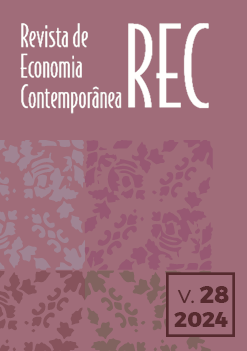Populism as concept: theory and history of the interpretations
Keywords:
Populism, Crisis, Economic policyAbstract
The literature refers to populism to qualify both political parties and non-institutionalized political movements, but also extends it to a certain type of economic policy, even if it is comparing governments of different shades and with very diversified economic policies and practices. Such polysemy of the concept can be attributed, in part, because authors use it with different objectives and also to designate different phenomena, with implications in the formulation and/or execution of economic policies. This way, the purpose of this paper is to investigate four aspects central to the study of populism. First, the origins of the concept. Second, its distinct analytical dimensions. Third, the instruments of the production of thought that support the analysis of populism. Finally, how these intellectual instruments help to forge pejorative interpretations of the so-called “populists’ experiences”, as well as presenting difficulties in capturing the relationship between populism and economic crises. To do so, we review the literature on the interpretations of populism paying attention to its intellectual ground and context. By doing this, we intend to contribute to the construction of a new research agenda on populism as a phenomenon in modern societies.
Downloads
Published
Issue
Section
License
Copyright (c) 2024 Leonardo Segura Moraes, Pedro Cezar Dutra Fonseca

This work is licensed under a Creative Commons Attribution 4.0 International License.
The Revista de Economia Contemporânea (Journal of Contemporary Economics) adopted the Creative Commons license attribution-type BY-NC until April/2015. The license attribution-type BY has been adopted ever since.
Ownership of copyrights belongs to the IE-UFRJ (Instituto de Economia da UFRJ), which will not pay copyrights for published works. In accordance with current copyright regulation and the type of copyright license adopted (CC-BY), article full or partial reproduction and release are allowed provided that the citation source is disclosed. In case this copyright rule is not obliged, a written warning will be issued by the publisher to the person who has disregarded this regulation.


